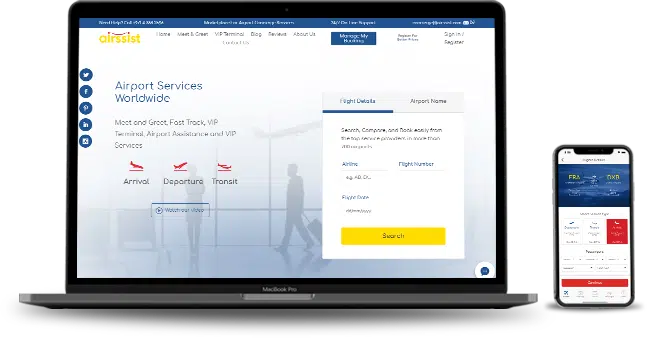Table of Contents
Typically, business travel plays a significant role in corporate growth. Simply showing up when it matters can improve client retention, networking opportunities, business development, and employee engagement. It is moral and legally required to have a strategy in place to take care of your employees when they are away on business.
A complete plan assesses both known and unknown risks to prevent employee harm and potential legal repercussions for the business. The duty of care strategy is what it is called. As a result, organizations must uphold their duty of care standards even as they change as a result of national and global crises.
What Is Duty Of Care?
Duty of Care is a corporate policy and legal responsibility that ensures that businesses are committed to the physical, psychological, and social wellness of their employees. This encompasses a wide range of dangers, with the following being the most typical ones:
- Health and safety
- Food and drinks provided by the organization
- Fire safety
- Discrimination and bullying
- Stress
- Violence
- And many more
Employers who plan and take all necessary precautions to reduce danger to their concern for their workers’ safety.
What Could Go Wrong During Business Travel?
Business travelers may encounter a variety of problems that could be disruptive. In addition, it is challenging to avoid contrasting how travel has altered since our pre-COVID era.
Employee support is crucial, especially for those going to work travels alone. The following are some challenges that business travelers could run into:
- Flight Cancellations Or Delays
- Adapting Entry And Departure Requirements
- A Missed Flight
- Developing A Disease While Traveling
- Crises Or Mishaps
- Insufficient Travel Documentation
Companies need to ensure that their staff is aware of their duty of care and knows how to get help when they need it.
And provides further aid to all types of travelers, including airssist services dedicated airport assistance from the time of their arrival until they are at the boarding gate and everything in between.
Why Should You Focus On Duty Of Care?
A corporate travel program must incorporate duty of care. Your duties as an employer apply to all parties, including local and remote employees, board members, consultants, and contractors.
employees have a legal right to care for them when they are away on business, and they have every right to sue their employer for carelessness if the employer breaches this duty and the employee is harmed as a result.
Many nations are enacting legislation that makes businesses criminally liable for any breaches of the duty of care. For instance, a company and its senior personnel may face civil or criminal charges in the U.K. under the Corporate Manslaughter Act for a serious breach of their duty of care.
However, by putting in place a clearly defined duty of care program, you can prevent breaches and the associated legal repercussions. You want to keep your staff safe. Therefore, you must be able to demonstrate that you took all necessary safeguards in case of that something were to happen despite your best efforts.
For EXAMPLE:
In Venezuela, two workers for an oil and gas company lost their lives. The jury rejected the complaint brought against the firm because it had taken all reasonable precautions to avert the catastrophe, or in other words, it had strictly adhered to its duty of care requirements.
Aside from the moral and legal requirements, the duty of care benefits your company in other ways as well. Making business travel less complicated boosts employee productivity and makes it simpler for them to complete their task and providing for their needs is a tried-and-true method of keeping them around. Taking precautions to avoid mishaps also keeps your plans on track.
What Are The Risks That Business Travelers Face?
You must comprehend the types of dangers your employees could encounter when on business trips to create a thorough corporate duty of care policy including:
1. Health Risks
These can be individual travel-related illnesses like jet lag, sleep disorders, food poisoning, and the regular flu or worldwide pandemics like COVID-19. Depending on the specific circumstances of each traveler, the intensity can vary greatly.
2. Political Risks
Travelers caught up in civil unrest, such as terrorist attacks, riots, and political disputes, face high-security risks.
3. Cultural Risks
The risk of standing out from the neighborhood crowd is enough. Your employees will frequently encounter strange surroundings or cultures when traveling. Language limitations can make it difficult to navigate daily life and respond to emergencies.
4. Natural Disasters
Business travelers may find themselves in the middle of blizzards, hailstorms, earthquakes, tornadoes, or other disasters that call for quick shelter or evacuation depending on where they are.
5. Accidents
Road traffic accidents and airline emergencies (such as collisions in the air and emergency landings) are the two most frequent threats in this category.
6. Theft And Harassment
This frequently revolves around profiling. In addition to standing out from the crowd, business travelers who are impeccably dressed and carrying high-end mobile devices may be more likely to be the target of insults, threats, and pickpocketing.
To protect your corporate traveler or employees, you must always be ready to respond to any incident that might occur. Because of this, businesses need a strong duty of care strategy to be ready for these kinds of threats.
Duty of Care Vs Travel Risk Management
Duty of Care is the legal requirement to investigate, prepare, and put into practice a strategy to lessen the hazards associated with personnel traveling on business.
A company’s duty of care will include a statement about how seriously it takes its responsibility to care for its employees. To uphold this commitment, a range of procedures and techniques will be used; travel risk management is one of the actual strategies.
The Risk Management process Is how the company will uphold its “Duty of care”. In other words, you carry out your duty of care by putting travel risk management practices into place.
A duty of care strategy must be created before you can undertake a travel risk assessment, which will determine the areas you should concentrate on. A duty of care policy should investigate, record, forewarn, and provide training for any potential dangers.
Tips To Implement A Successful Duty Of Care Program
We have included some useful advice to assist you in starting and building a strong duty of care program. For your convenience, the advice has been divided into Pre-Travel, During-Trip, and Post-Trip sections.
Pre-Travel
Risk Evaluation
Analyzing the level of risk present at each stage of the journey is the first step.
Before making travel and lodging arrangements, consider all aspects of the area, including road safety, the environment, inclement weather, the existence of diseases like malaria or respiratory viruses, and political and social factors.
It’s a good idea to evaluate the risk level of your potential business destinations regularly. This routine enables you to uphold practical internal travel policies, such as limitations on travel to dangerous nations.
Know Your Traveler
The more information you have on your traveler, the better you can protect them from dangers. Use this information you gather about your employees’ physical and mental health if your local employment regulations permit it to plan for any unique dangers that certain travelers might encounter.
Inform Your Staff
Make sure your staff members are knowledgeable about the travel procedures of your business. inform them about the destination they are traveling to and provide them with useful travel safety advice.
Make sure your staff members have access to the emergency phone numbers for both your travel insurance company and your travel team before they depart.
Set Up Your Team
Make and distribute a travel policy that gives instructions to your staff members in charge of managing travel arrangements. Ensure that your team monitors the company’s reservations to screen out any high-risk or illegal travel arrangements.
Make sure you have the names and phone numbers of any clients or business partners the traveler will be meeting before they depart. Establish travel alerts as a final step to advise your travelers and travel staff of any potential disruptions.
During Travel
The major task at hand is to constantly be aware of where your traveling personnel is. Implementing a traveler monitoring tool in collaboration with, corporate travel managers or a third-party duty-of-care service provider is a smart idea.
These applications will let you know which travelers pose a risk, track your staff in real time, notify them of any active alerts, and pinpoint potential problems with upcoming reservations.
Give your travelers 24/7 support in case of emergencies or itinerary modifications whether you’re employing a third-party supplier or performing the duty of care yourself.
Don’t forget the airport part either; by guiding corporate travelers, business leaders, VIPs, families, and travel enthusiasts through all airport formalities, airssist meet & greet services at the airport aims to make everyone as comfortable as possible.
Post Travel
Once your travelers return to the office, you should survey them to get their comments so you can make improvements. Additionally, you might want to offer post-trip health exams.
To stop the spread of any travel-related viruses, for instance, the majority of organizations gave post-travel examinations to employees who had just returned from business trips during the COVID-19 outbreak.
Why do Travel Managers need To Partner With airssist For Their Company Team’s Travel At The Airport?
Travel coordinators frequently overlook the significance of easing the airport experience for their team of CEOs, company leaders, and decision-makers who are on missions. They always plan for flights, hotels, visas, and meetings.
- Shorten the amount of time your crew spends at the airport
- Discover all service providers for all airports globally at “airssist“
- Quickly book the service online.
- Special pricing for traveling business groups
- Free corporate account signup
- Complete training for travel agents using the airssist platform
The Bottom Line
While some businesses already take their duty of care seriously, for others it could be too difficult to even consider. It’s imperative that you take care of things for the latter.
Note: Please note that the information on this page is generic & subject to change due to fluctuations in airport services. Kindly confirm service availability with our team, as offerings may vary daily.
 French | Français
French | Français German | Deutch
German | Deutch Arabic | العربية
Arabic | العربية Chinese | 中文(简体)
Chinese | 中文(简体)  Japanese | 日本語
Japanese | 日本語 




